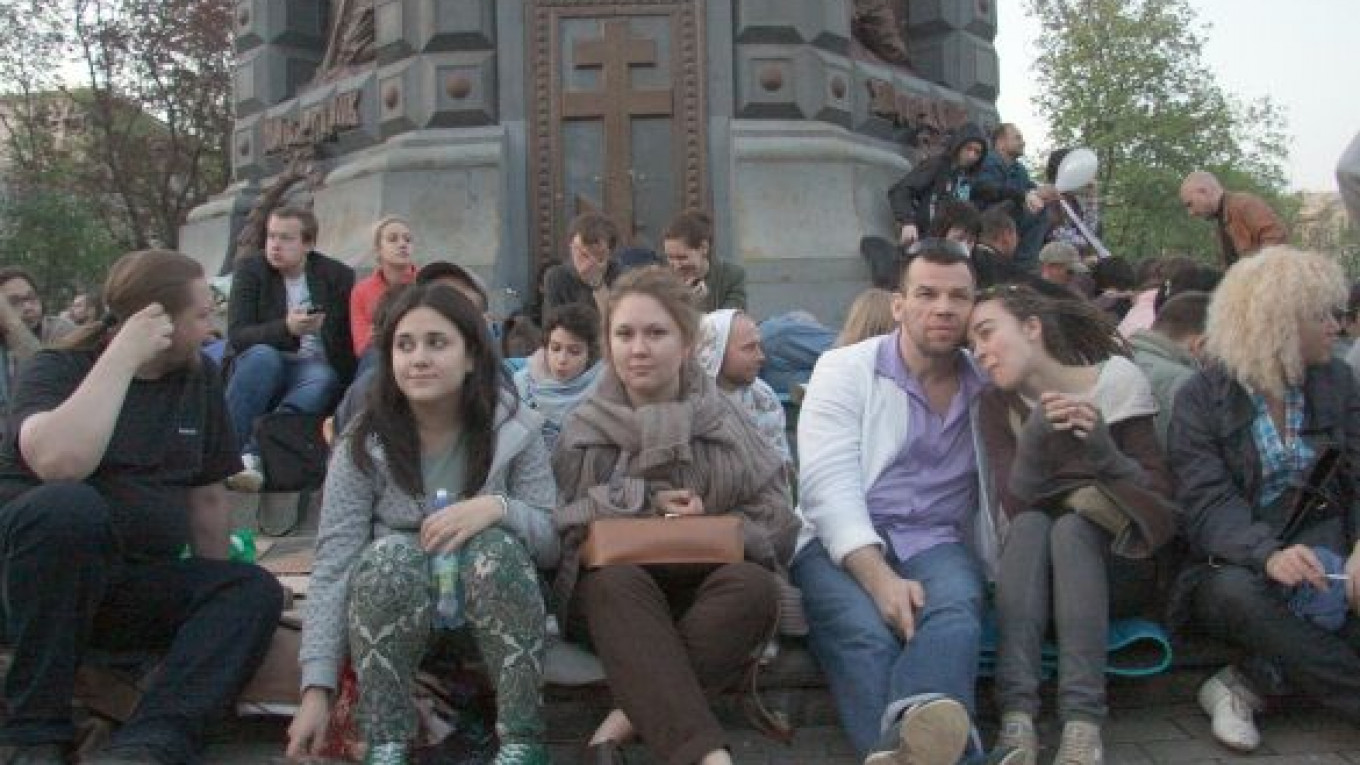Navalny's lawyer Vadim Kobzev wrote in Twitter that the opposition activist would be questioned in connection with criminal charges for inciting a riot during the May 6 protest on Bolotnaya Ploshchad.
The Investigative Committee said Monday it was opening a criminal investigation under criminal codes for inciting a riot and harming a law enforcement authority, charges which carry a maximum penalty of three and five years in jail, respectively.
Both Navalny and Left-Front leader Sergei Udaltsov were given 15 days in jail on charges of disobeying a police officer Wednesday, sparking outrage among opposition activists.
After a rally on Lubyanskaya Ploshchad in front of the headquarters of the Federal Security Service Wednesday, protesters began gathering at Chistiye Prudy and Alexander's Garden in a continuation of the mobile protests that have been ongoing since President Vladimir Putin's inauguration Monday.
The numbers at Chistiye Prudy grew as high as 1,500 people, and about 50 protesters made it through the night to outlast even police buses, the last of which rolled away mid-morning Thursday, Interfax reported. Protesters cheered as the last police bus left.
A group of writers and musicians, including prominent opposition figures Boris Akunin and Dmitry Bykov, has also announced they will take part in an opposition "writer's walk" to take place in downtown Moscow Sunday. The format mirrors the "people's walk," which is the name given by opposition figures to their protest processions. Demonstrators have said they do not need permission from city authorities to walk in groups around the city since they do not chant slogans or carry signs.
Meanwhile, Investigative Committee spokesman Vladimir Markin said the number of police officers injured at Monday's protest where about 300 were arrested has been raised to more than 30, Interfax said.
A Message from The Moscow Times:
Dear readers,
We are facing unprecedented challenges. Russia's Prosecutor General's Office has designated The Moscow Times as an "undesirable" organization, criminalizing our work and putting our staff at risk of prosecution. This follows our earlier unjust labeling as a "foreign agent."
These actions are direct attempts to silence independent journalism in Russia. The authorities claim our work "discredits the decisions of the Russian leadership." We see things differently: we strive to provide accurate, unbiased reporting on Russia.
We, the journalists of The Moscow Times, refuse to be silenced. But to continue our work, we need your help.
Your support, no matter how small, makes a world of difference. If you can, please support us monthly starting from just $2. It's quick to set up, and every contribution makes a significant impact.
By supporting The Moscow Times, you're defending open, independent journalism in the face of repression. Thank you for standing with us.
Remind me later.






